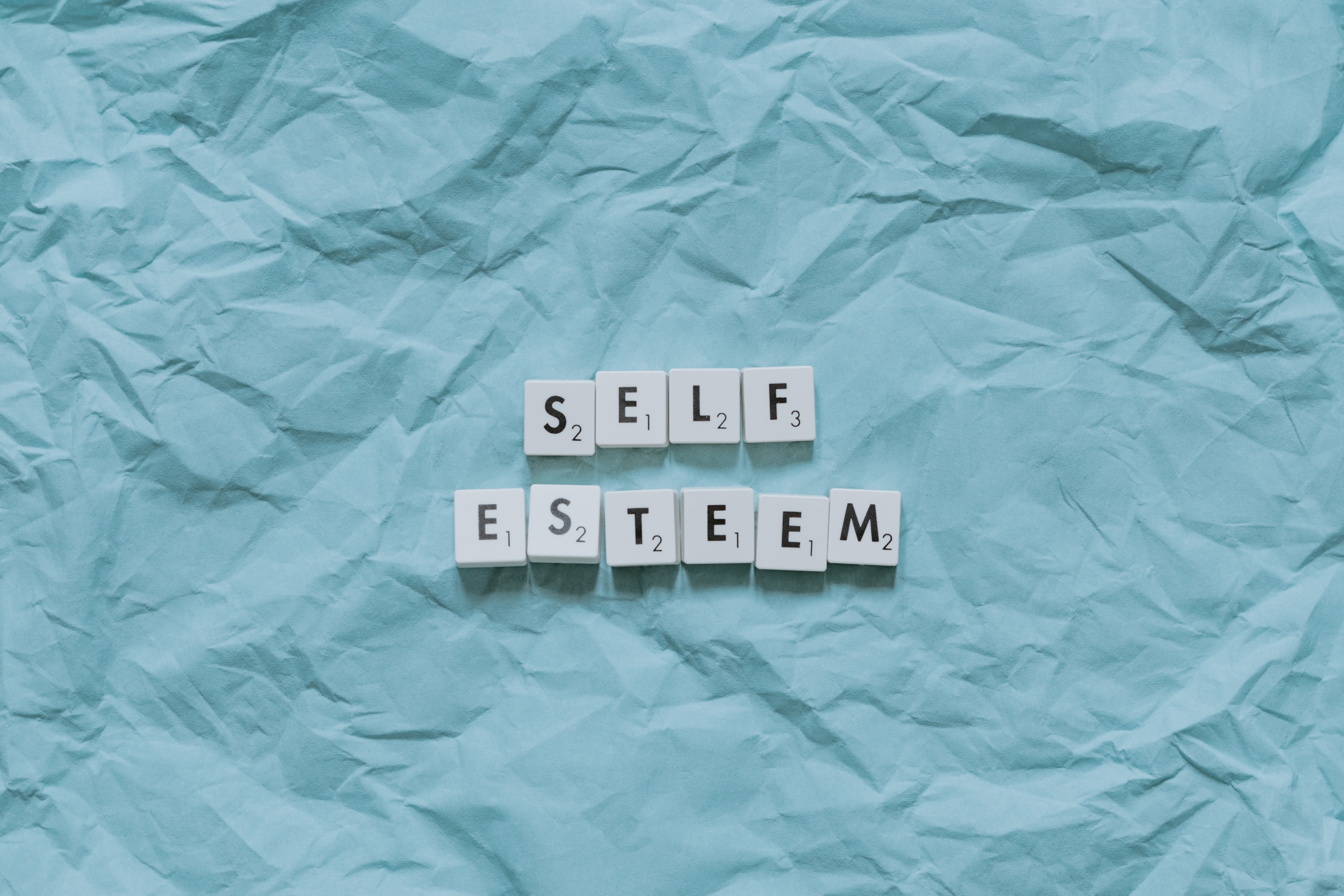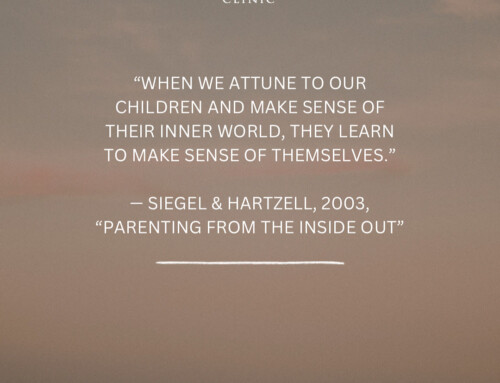At first glance, it may seem as though humility, self-esteem, and self-worth are not compatible with one another. It’s possible that this is because thinking highly of oneself is often linked to the sin of pride, especially so within Catholic spirituality. While it is certainly beneficial to guard against pride, this perspective can also lead us into some problematic and paralyzing ways of treating ourselves. With some helpful distinctions, I hope to lay out a vision of self-esteem, self-worth, and humility as not only compatible but equally essential parts of healthy human development.
Getting Clear on Self-Esteem, Self-Worth, and Humility
Preconceived notions of what these words mean are based largely on how they are commonly used. While understandable, this may be part of why they seem incompatible. To provide clarity on this, I will define the terms “self-esteem”, “self-worth”, and “humility” from a clinical and theological perspective. From there, I will explain how this understanding differs from the way the terms are commonly used.
According to the American Psychological Association, self-esteem is defined as:
“The degree to which the qualities and characteristics contained in one’s self-concept are perceived to be positive. It reflects a person’s physical self-image, view of his or her accomplishments and capabilities, and values and perceived success in living up to them, as well as the ways in which others view and respond to that person. The more positive the cumulative perception of these qualities and characteristics, the higher one’s self-esteem.”
Simply put, self-esteem is the degree to which we perceive ourselves as capable of realizing our potential. As noted in the definition, an important component of self-esteem is the way others view and respond to us. So, we have a twofold formula for developing self-esteem: 1. Matching our efforts with our capacity to fulfill our potential and 2. Receiving positive support from others along the way. Negative or positive feedback in either category will shape how high or low our self-esteem is.
According to the APA, self-worth is defined as: “an individual’s evaluation of himself or herself as a valuable, capable human being deserving of respect and consideration. Positive feelings of self-worth tend to be associated with a high degree of self-acceptance and self-esteem”. While these two concepts are interconnected, it’s clear that self-esteem is linked more to our functioning and self-worth is linked more to the core of our identity. Self-worth refers directly to the dignity of a human being and the extent to which we acknowledge this dignity within ourselves.
Humility, on the other hand, is a disposition of lowliness that keeps us from reaching beyond our capacity as humans. This disposition is fostered by acknowledging our limitations, specifically for the purpose of emphasizing our need for God’s assistance. In the words of Aquinas, “to temper and restrain the mind, lest it tend to high things immoderately; this belongs to the virtue of humility” and “Humility restrains the appetite from aiming at great things against right reason” (ST II-II, q. 161, a. 1). In simple terms, humility is defined as a restraint of oneself to ensure our aim for greatness is directed towards the good.
Common Misrepresentations
Firstly, having high self-esteem or acknowledging one’s self-worth cannot be reduced to a feeling or emotional state. Developing a strong sense of sense may include positive emotional states but is not the goal. As described above, both self-esteem and self-worth relate to our ability to positively perceive ourselves both in functioning and identity. This process involves behavior, values, beliefs, relationships, and our experience of ourselves. As such, we cannot reduce them solely to an emotional state.
Secondly, these terms are not meant to erase the reality that humans are imperfect. Having a positive view of oneself does not imply that we can’t or shouldn’t grow. If anything, higher self-esteem, and self-worth bolster our ability to improve ourselves. When we see ourselves as capable and valuable, we can recognize our mistakes and adjust better. According to Carl Roger, a key figure in the history of psychotherapy, the experiential freedom that accompanies a secure self helps guide our actions, empowers us to actively make choices, and take responsibility for these choices. This combination fosters an innate desire to grow towards health and respond more robustly to the places where we fall short.
Thirdly, self-esteem and self-worth are not just cognitive constructs that can be gained by sheer will. It is more accurate to identify these concepts as dynamic processes. This lines up well with our understanding of attachment theory, which posits that, “the self is viewed as an ongoing construction, a process rather than an object, and one that is defined in interactions with others [and ourselves]” (Susan Johnson). Developing self-esteem and self-worth is a reciprocal process of receiving support from our closest relationships which then empowers us to bravely go out into the world and grow. The result of this process is experiencing ourselves as trustworthy vehicles for moving through life.
Lastly, humility is not self-loathing. I don’t particularly care for this term as it tends to pathologize or shame the person suffering from this experience, but the point is that we can become so harsh with ourselves that we no longer see ourselves as worth anything. Pope Francis mentioned this in a homily from 2013, “Being humble does not mean following the road with one’s eyes cast down: no, no! Humility is what God as well as Mary and Joseph teach us”. Aquinas describes “ill-done” humility as reducing ourselves to animals which happens when we do not understand our honor. Humility should not be sought at the expense of our humanity. This is in line with the aim of the Christian life, which seeks to free us from our burdens and support human flourishing.
How Self-Esteem, Self-Worth, and Humility Work Together
“All of us, from the cradle to the grave, are happiest when life is organized as a series of excursions, long or short, from the secure base provided by our attachment figures” – John Bowlby
This quote captures the process I described earlier; we develop best when we have a safe harbor to depart from and return to as we face life’s challenges. We need somewhere to turn when we miss the mark or celebrate a new accomplishment. When the destination is reliable and accessible, both within ourselves and with others, we will develop high self-esteem and know our self-worth. This is where humility comes in to show us how we can make this process reliable and accessible.
Humility is a disposition that helps us acknowledge our need for help. It reminds us to connect with our secure base, whether that takes the form of our human relationships (acting on God’s behalf) or reaching for God Himself. This ensures that we are not overextending ourselves. Otherwise, we risk either getting stuck in our failure or relying too much on ourselves. By honoring our relational need for support, we experience ourselves as more capable, valuable, and worthy than we ever could on our own.
Self-esteem and self-worth are felt most powerfully in relationship. They are the relational gift of secure connection and humility is the way we vulnerably reach for and acknowledge our need for this gift, most of all from God. Self-esteem flows out of this relationship, providing us with a confidence that with God and each other, we can do great things. It’s almost as if God designed us this way to protect our hearts from isolation and pride.
To take an honest look at ourselves, we must feel secure enough to do so. God’s love is the healing salve for our weary souls, continuing to bring us towards our worth and value in His eyes. Taking a page from Aristotle, our relationship with God helps us actualize our potential. In other words, we embody more and more of our true self which allows us to experience ourselves as secure and worthy. This helps us truly believe in our identity in Christ. We are in the art of becoming, more fully participating in what it means to be human as intended by God. In this way, self-worth is a gift of love. I’m reminded of a saying I use in therapy, “we find out who we are in the eyes of the ones we love the most”.
This is a cyclical process. When we acknowledge our self-worth, we are fueled to depend on God because we see ourselves as the beloved. Seeing ourselves in this way facilitates a confidence in reaching for God and seeing Him as an accessible source of support. One of the greatest forms of humility is allowing God to love us in the places we feel the weakest and most broken. True self-worth comes from allowing another to love us when we feel we deserve it the least. Acknowledging our weaknesses, our needs, our vulnerabilities is only the first half of growth. The second is accepting the antidote which sounds like, “I still love you, come to me”. If we can only turn to Him in our sin or pain, we can feel whole again. This is our model for relationship, with God and with each other.
*The information provided is for self-enrichment and not intended to replace any necessary mental health treatment
Warmly,
Jonathan Dixon, LMFT
Jonathan Dixon is a Licensed Marriage and Family Therapist in Virginia who has offered mental health services at Alpha Omega Clinic’s Fairfax office since 2013. He is an active member of the Association of Marriage & Family Therapy.




